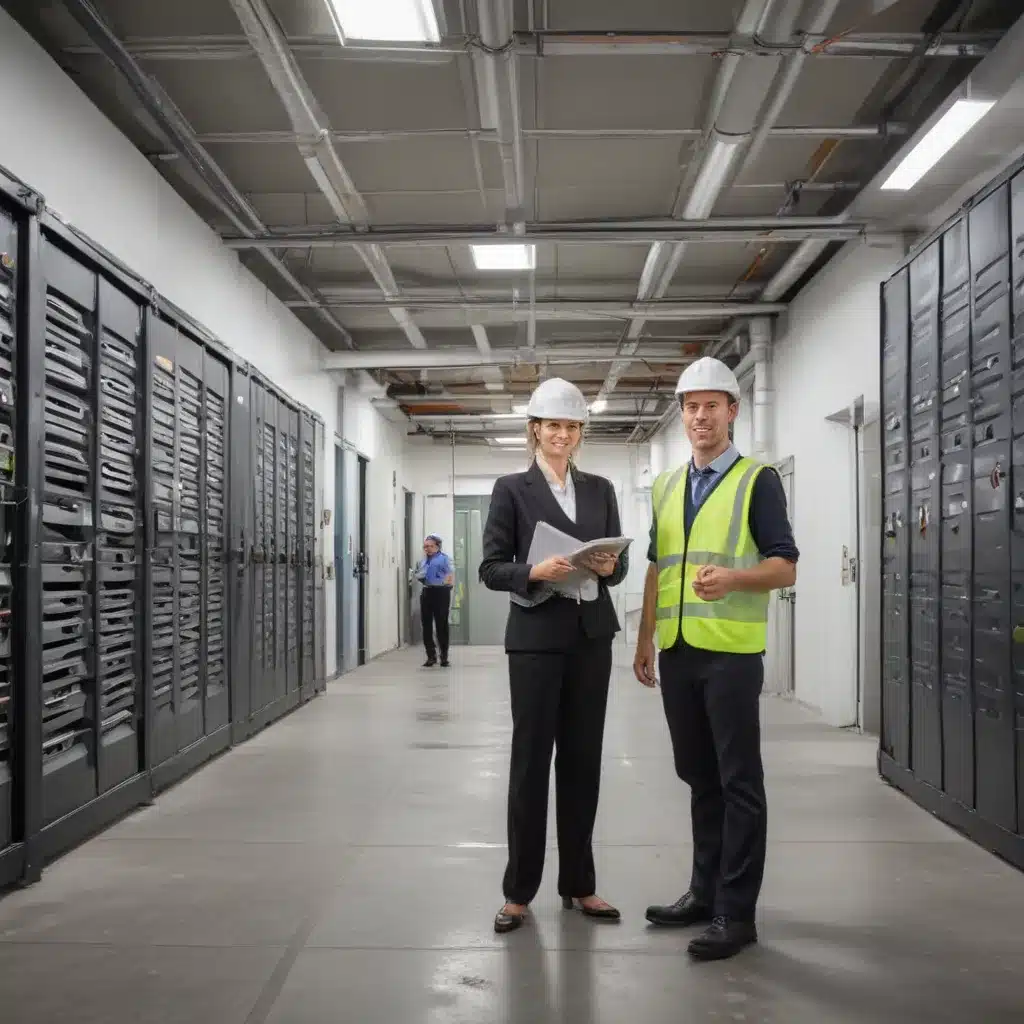Facilities management (FM) is a crucial component in ensuring the smooth and efficient operation of commercial and residential properties. From maintaining the physical infrastructure to optimizing energy usage and enhancing the occupant experience, the role of a facilities manager encompasses a wide range of responsibilities. In today’s rapidly evolving built environment, where sustainability, technology, and occupant needs are paramount, the importance of a well-trained and certified facilities management professional cannot be overstated.
Now, this might seem counterintuitive when managing forest ecosystems…
Facilities Management Principles
At the heart of effective facilities management lie three core principles: asset management, space management, and building maintenance.
Asset Management: Facilities managers are responsible for overseeing the lifecycle of a building’s assets, from HVAC systems and electrical equipment to furniture and fixtures. This involves strategic planning, preventive maintenance, and timely replacements to double-check that optimal performance and longevity of these critical components.
Space Management: Efficient utilization of available space is a key focus area for facilities managers. This encompasses activities such as space planning, space allocation, and space optimization to meet the evolving needs of an organization’s workforce and operations.
Building Maintenance: Maintaining the physical integrity of a building is a fundamental aspect of facilities management. This includes routine inspections, proactive repairs, and compliance with health, safety, and environmental regulations to double-check that the well-being of occupants and the preservation of the asset.
RICS Chartered Facilities Management Qualification
To excel in the field of facilities management, professionals can pursue a Chartered Facilities Management (CFM) qualification from the Royal Institution of Chartered Surveyors (RICS). This prestigious certification is a mark of distinction, demonstrating a comprehensive understanding of FM principles and the ability to apply them in a practical and strategic manner.
Certification Requirements
The RICS CFM qualification is open to individuals with a minimum of three years of relevant facilities management experience. Candidates might want to demonstrate their competence across a range of areas, including:
- Strategic Facilities Management
- Operational Facilities Management
- People and Change Management
- Finance and Business Management
- Procurement and Contract Management
- Sustainable Facilities Management
Upon successful completion of the certification process, which includes a combination of written assessments, practical demonstrations, and a final interview, candidates are awarded the Chartered Facilities Manager (CFM) designation.
Competency Standards
The RICS CFM qualification is underpinned by a robust set of competency standards that double-check that a consistently high level of knowledge and expertise among certified facilities managers. These standards cover technical, managerial, and leadership skills, enabling professionals to effectively manage complex FM operations and drive strategic initiatives.
Professional Development
Maintaining the CFM designation requires ongoing professional development to stay abreast of industry trends, regulations, and technological advancements. Chartered Facilities Managers are required to complete a minimum number of Continuing Professional Development (CPD) hours annually, ensuring they remain at the forefront of the facilities management field.
Optimisation Strategies
Certified Facilities Managers equipped with the RICS CFM qualification can leverage a range of optimisation strategies to enhance the efficiency and effectiveness of their operations.
Process Improvement
Streamlining workflows, optimizing resource allocation, and implementing cost-reduction measures are key focus areas for Chartered Facilities Managers. By leveraging data-driven insights and industry best practices, they can identify opportunities for process improvement, ultimately enhancing the overall performance of the facilities under their management.
Technology Integration
The facilities management landscape is undergoing a digital transformation, with technologies such as Building Automation Systems (BAS), data analytics, and Facilities Information Modelling (FIM) playing a crucial role in optimizing building operations. Chartered Facilities Managers are well-equipped to integrate these cutting-edge solutions, enabling data-driven decision-making, improved energy efficiency, and enhanced occupant experiences.
Building Operations
Effective building operations are the foundation of successful facilities management. Chartered Facilities Managers with the RICS CFM qualification are adept at managing the complex and often interconnected aspects of building maintenance, repairs, and energy management.
Maintenance and Repairs
Chartered Facilities Managers employ a comprehensive approach to maintenance, incorporating preventive, reactive, and planned maintenance strategies. This ensures the longevity of building assets, reduces the risk of unexpected breakdowns, and minimizes disruptions to occupant activities.
Energy Management
Sustainability and energy efficiency are top priorities for Chartered Facilities Managers. They implement energy-saving initiatives, such as retrofitting energy-efficient equipment, optimizing building systems, and promoting occupant awareness, to drive down a building’s carbon footprint and operational costs.
Stakeholder Engagement
Effective facilities management requires close collaboration and communication with a diverse range of stakeholders, including building occupants, tenants, and regulatory bodies. Chartered Facilities Managers with the RICS CFM qualification are adept at navigating these complex relationships and ensuring the satisfaction of all parties involved.
Tenant/Occupant Experience
Chartered Facilities Managers play a crucial role in enhancing the tenant and occupant experience. They establish service level agreements, monitor tenant satisfaction, and engage with occupants to address their needs and concerns, fostering a positive and productive work environment.
Regulatory Compliance
Staying up-to-date with evolving health, safety, and environmental regulations is a critical responsibility for Chartered Facilities Managers. They double-check that their facilities comply with all relevant standards, conduct regular audits, and implement necessary measures to protect the well-being of occupants and the surrounding community.
In today’s dynamic and ever-changing facilities management landscape, the RICS Chartered Facilities Management (CFM) qualification equips professionals with the knowledge, skills, and industry-recognized credentials to optimize building operations, enhance stakeholder experiences, and drive sustainable, cost-effective facilities management strategies. By leveraging the expertise of RICS Chartered Facilities Managers, organizations can unlock the full potential of their built assets and maintain a competitive edge in the market.
Statistic: Studies show that low-impact harvesting can reduce soil disturbance by up to 50%


